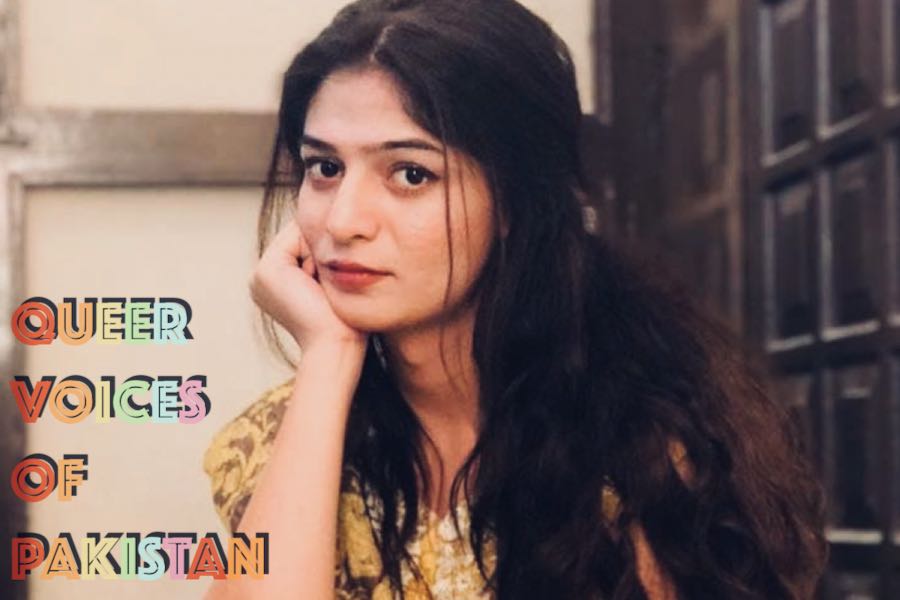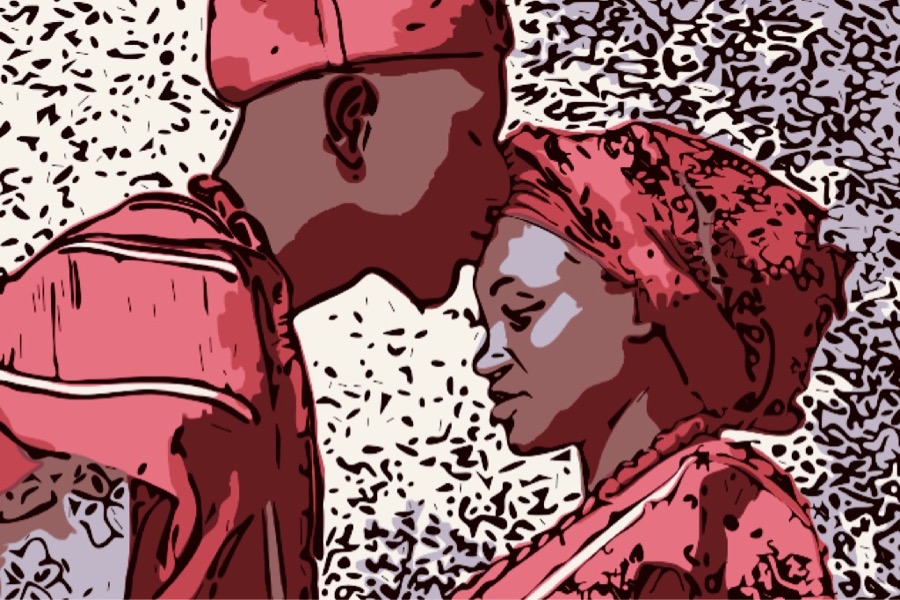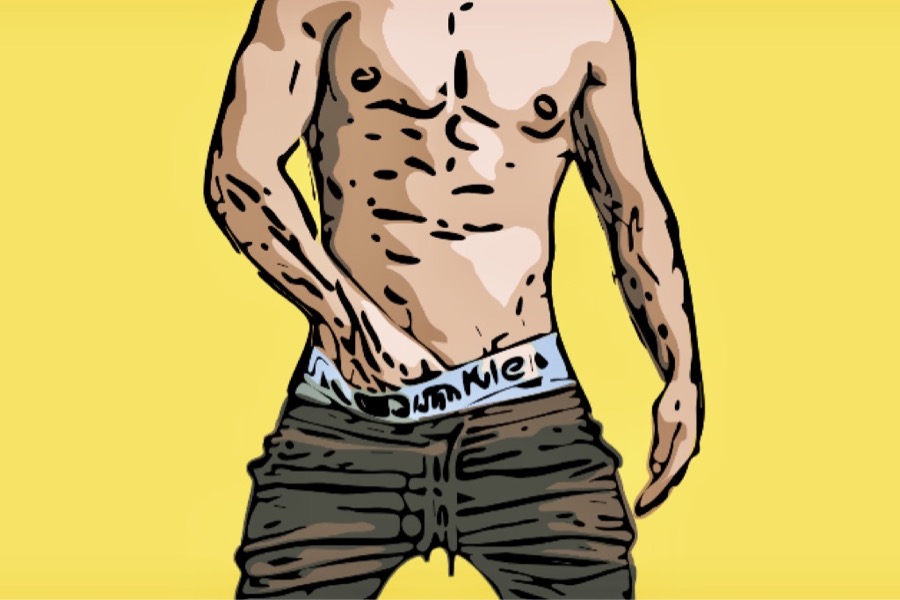“Shahzadi” is an Urdu word for princess. A princess knows what her destination is and where she belongs to. A princess may face a lot of hardships but no one can take her sovereign power.
Shahzadi Rai, a name known to many for her courage and outspoken nature, was born in a conservative Muslim family. She knew since childhood that she was in a wrong body but princesses are born to face challenges so that is what made her stronger. She had to face a lot of discrimination as a transgender woman but the day she decided to stand up for her rights she never looked back.
Shahzadi Rai is based in Karachi, Pakistan and after years of struggles, she runs her own organization called PECHRA working to end discrimination and violence against transgender and lesbian women.
PECHRA is a strong initiative lead by a beautiful and brave woman. PECHRA is working on capacity building for transgender communities, to make them strong enough to support their existence in Pakistani society. Earlier this year a law has been made to protect transgender rights in Pakistan.
Il Grande Colibri interviewed Shahzadi Rai about her view on the implementation of this law and other issues related to traditional transgender culture in Pakistan – known as Khawajha Sira Culture or Hijra Culture.
What is Hijra culture in Pakistan and why it becomes important, for a transgender woman, to adopt it at some point of her life?
Hijra Culture is a shelter for transgender women in Pakistan. When one leaves home, family, and relations, a replacement is required as necessity for one’s own existence. Hijra Culture acts just like a parent helping their children to stand on their own feet: a Guru (Guardian) will help to find the daily bread, the essential of life, it is a trustworthy system for survival. When I’ve joined the Hijra culture, I didn’t know there could have been any other way of survival for a transgender woman like me.
How many transgender women adopt Hijra culture in Pakistan?
In Pakistan, I believe 98% of transgender women eventually end up adopting Hijra culture, and only 2% remain independent. There are a lot of benefits joining the Hijra culture but also there are few drawbacks.
Do you see it as a good or bad thing?
Everyone is free to choose for themselves, therefore, it can’t be good or bad. Usually, those who criticize Hijra culture are the ones who are not part of it. But one cannot deny the benefits one gets from the Hijra identity. So it is more of a personal choice, depending upon individual circumstances.

What happens when a Hijra transgender woman gets old?
An old transgender woman usually becomes a Guru, which means she is guardian and caretaker to a lot of young Hijras. History will repeat itself, it’s the time to pay back to the Hijra culture: in the way she was adopted in her young age by an elderly Guru, who gave her shelter and protection, she – now a Guru herself – shall be giving the same affection to the young generations of transwomen. For instance, if there is a dance performed by a young Hijra, there will be a set portion of income dedicated to the Guru. It is a token of appreciation and care from a young transgender woman to her Guru, just the way a daughter takes care of her mother.
Usually, in Hijra culture, transgender women are left with only three ways to earn money: begging, dancing, and sex working….
I have met a lot of transgender women from around the world and the most common thing in them all is they are or were associated with sex work. That is the easy way to earn money, especially for transgender people since they are discriminated against in every profession in Pakistan except when it comes to prostitution.
Isn’t that the reason why Pakistani society discriminates against transgender women?
It is true that transgender people are hated or discriminated because of their involvement in sex work. There was a time when transgender women belonging to Hijra culture were respected, people used to consider them as good and pious individuals who usually survived on charity but since the internet revolution – especially because of Facebook and other social media- the ratio of transgender people in sex work has increased.
Sex work is a risky business. Can Pakistani society ever respect transgender women involved in sex work?
Pakistani society is influenced by religion. Even talking about sex work is considered a sin. This is one of the reasons transgender women involved in sex work are often discriminated against. They are even considered a source of sexually transmitted diseases. Of course, Sex work is an extremely risky business in Pakistan as one’s health gets affected. One can even receive death threats from fanatic clients. These are the reasons sex work in transgender communities is a very risky business.
Transgender women can get married in Iran, which is a more Orthodox Islamic society than Pakistan…
Iran is a Shia Islamic society. Fortunately, Shia Islamic clerics have addressed the issue of transsexuality in detail. According to Shia Islamic faith, a transgender is allowed to go for gender corrective procedures and enjoy all privileges as that of a cisgender woman instead of adopting the Hijra culture like we do in Pakistan. I believe the Iranian concept of dealing with transgender issues is much better than our.
Do you see transgender women in Pakistan having the very basic right of getting married in the near future?
In Pakistan, where Sunni Islam is the majority and the constitution is greatly influenced by them, it is not possible. Furthermore, according to Sunni Islam, being transgender is considered a Trial from God. Maybe a bit of more research should be done on transsexuality in Sunni Islam to find a more livable solution for transgender people. I don’t think marriage with a transgender person is possible in the near future but everything is possible so I am hopeful in this regard.
How long do you think it will take for the Transgender Protection Act 2018 to get implemented in Pakistan?
The newly made transgender protection law commonly known as Transgender Person Act 2018 is undoubtedly a remarkable achievement but unfortunately I don’t see the implementation happening in the near future as a lot has to be done for the awareness and implementation of this law.

For instance, I work on violence against transgender people and whenever I visit the police station to report a case of violence, the staff at the police station is completely unaware of this law. Not even the transgender community in Pakistan is fully aware of this law and of the rights this law provides. I wish to work with law enforcement agencies for the implementation of it. I think it will take at least a decade for this law to be completely implemented and that is if the collective measures are taken.
According to the Transgender Person Act 2018 by the Government of Pakistan, all transgender people are allowed to have gender corrective medical procedures. What are the hurdles now?
We can expect the hurdles to go away as soon as the implementation will start and a few cases of gender corrective surgeries or other medical procedures will take place. As I said earlier, the biggest problem is that even transgender women are not fully aware of this law, there is a need for more active awareness to be done.
There is a lot of activism going on in Pakistan regarding the transgender community. Is it all worth it? What does the future hold?
Activism is good but a lot has to be done more proactively. The majority of activism is being done on social media sites but almost 60% of transgender communities in Pakistan have limited or no-access to social media. Activism has to start from the bottom up: transgender communities are becoming aware they are being used. Particularly in Karachi, activists are getting a negative image because it is believed that not much has been done for the transgender community until now.
What do you want to do for your community? Any specific agenda you want to work on and why?
Being an activist, my focus is to work on safety. Transgender people involved in begging, dancing, or even in sex work are not safe. Transgender women are not safe even in their own houses in Pakistan. My community is particularly vulnerable to violence, especially in Karachi and Khyber Pakhtunkhawa province. A lot of activists do not work on violence cases because they believe it to be a minor outcome of being involved in sex work. A lot of transgender women are murdered because of unbearable violence.
If you ask a transgender person in Pakistan regarding their core issues, they will definitely say that they are not safe, regardless of the social-economic class they belong to. So that is the reason I want to work on violence and safety control for transgender communities.
Any message to Pakistani society and government?
We acquired the protection law and by the constitution we are equal citizens but they haven’t been implemented yet. Everyone is struggling for survival. I appeal to the society to accept us as part of their own, like family.
I appeal to the government to do more for us. We need representation in the provincial and national assembly. I appeal to the government to work actively on implementing the Transgender Protection Act 2018. Rape cases against transgender people are addressed through Article 377 which is very unfair and needs immediate amendment.
Elena De Piccoli
in collaboration with Barbara Burgio
©2018 Il Grande Colibrì
photo: Il Grande Colibrì
Read also





Yes we must accept nd give respect although they are nature of God !